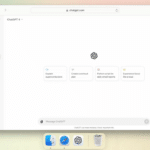New Recall tool could be Microsoft's best use of AI in Windows 11 yet -- and its most private

Microsoft Build kicks off today but -- as is usually the case -- there have been various pre-event announcements, not least of which is the unveiling of AI-powered Copilot+ PCs. The hardware side of things is both powerful and exciting, with huge implications for not only computing capabilities, but also privacy.
This new breed of computers features neural processing units (NPU) meaning AI-tasks can be performed on-device, without the need to transmit data via the internet. One of Microsoft’s first tools to take advantage of this is Recall (once known as AI Explorer) which is an astonishingly powerful workflow tool that records and maintains a timeline of your computing activities and gives you a way to instantly locate content you have been working on. Microsoft describes it as like having a photographic memory, but it is perhaps better thought of as the ultimate productivity assistant.
Cyber security and artificial intelligence -- business value and risk

In the current era of digitalization, cybersecurity has become a topmost priority for businesses, regardless of their size and nature. With the growing dependence on digital infrastructure and data, safeguarding against cyber threats has become crucial to ensure uninterrupted business operations. However, the evolving nature of cyberattacks poses significant challenges for traditional security measures.
This is where Artificial Intelligence (AI) emerges as a game-changer, offering substantial benefits and inherent risks in cybersecurity.
Balancing the rewards and risks of AI tools

AI’s promise of time and money saved has captivated employees and business leaders alike. But the real question is… is it too good to be true? As enticing as these rewards may be, the risks of this new technology must also be seriously considered.
Balancing the risks and rewards of AI is causing pause for many organizations as they grapple with the right way to adopt AI. Every deployment in every organization is going to look different -- meaning that the balance of risk and reward is also going to look different depending on the scenario. Here, we’ll talk through the promised rewards and the potential pitfalls of adopting generative AI technologies, as well as some guiding questions to help determine if it’s the right move for your business.
How RAG completes the generative AI puzzle

Generative AI entered the global consciousness with a bang at the close of 2022 (cue: ChatGPT), but making it work in the enterprise has amounted to little more than a series of stumbles. Shadow AI use in the enterprise is sky high as employees are making day-to-day task companions out of AI chat tools. But for the knowledge-intensive workflows that are core to an organization’s mission, generative AI has yet to deliver on its lofty promise to transform the way we work.
Don’t bet on this trough of disillusionment to last very long, however. A process called retrieval augmented generation (RAG) is unlocking the kinds of enterprise generative AI use cases that previously were not viable. Companies such as Meta, Google, Amazon, Microsoft, OpenAI and a number of AI startups have been aggressively rolling out enterprise-focused RAG-based solutions.
Walking the AI tightrope in IAM: finding the right balance for your organization

Identity and access management (IAM) is the foundation for control and productivity in today’s digital business environments. Ensuring the right people have the right level of access to the resources they need whenever they need them -- and that the wrong people don’t -- is a core responsibility for administrators and security teams. In a typical hybrid, distributed, multi-cloud environment, with thousands of identities to manage dynamically as the business evolves, the scale of the challenge is considerable. Enter Artificial Intelligence (AI), the seductive solution to all large-scale data-intensive challenges. AI has enormous potential for streamlining the many workloads associated with IAM and lifting the burden on stretched administrative and security teams.
We are undoubtedly experiencing an AI gold rush, but there are tensions in this brave new world. Our recent SME IT Trends report reflects this reality; while 87 percent of UK IT administrator respondents plan to implement AI initiatives in the next two years and 70 percent believe that their organization should be investing in AI, a significant minority (15 percent) say their organization is moving too fast on AI. They are in conflict with the 22 percent who think their business is moving too slowly. That amounts to well over a third of SME IT administrators who are uncomfortable with their company’s AI adoption rate.
A practical solution to the AI challenge: Why it matters that the AI Safety Institute has embraced open source

To be a world leader in AI, the UK must leverage its position as Europe’s number one in open source software. As the PM said on Friday, open source “creates start-ups” and “communities”. The UK’s open source community has flourished under the UK tech sector radar in recent years. OpenUK’s 2023 report showed 27 percent of UK Tech Sector Gross Value Add was attributable to the business of open source from the UK.
On the back of the AI Safety Summit last November, the UK has not taken the European Union’s route to a legislative solution. We will soon see the outcome of the EU’s gamble in being the first in the world to legislate. The very prescriptive legislation will likely be out of date before it is in use and this may engender regulatory capture in AI innovation in the EU. Few beyond big tech will be able to manage the compliance program necessary to meet the regulation. The risk is obvious and real.
The key technologies fueling chatbot evolution

Most of us are familiar with chatbots on customer service portals, government departments, and through services like Google Bard and OpenAI. They are convenient, easy to use, and always available, leading to their growing use for a diverse range of applications across the web.
Unfortunately, most current chatbots are limited due to their reliance on static training data. Data outputted by these systems can be obsolete, limiting our ability to gain real-time information for our queries. They also struggle with contextual understanding, inaccuracies, handling complex queries, and limited adaptability to our evolving needs.
The importance of people, process and expertise for cyber resilience in the AI age

No business is immune to the cyber threats that exist today, ranging from malicious software and ransomware to AI threats and more, which occur daily, weekly and often even more frequently than this. To counter them, companies must have strategies in place to minimize the potential damage of an attack by protecting data and putting plans in place to recover from a cyberattack as quickly and effectively as possible.
The increased adoption of AI by everyone from employees to cyber criminals is adding further risk and complexity to the security landscape. While cybercriminals are incorporating AI into their arsenal to enhance their attack strategies, employees are unwittingly helping these attackers gain their sought-after prize, data. Many employees today are experimenting with generative AI models to assist with their jobs, but many put vast amounts of data, ranging from personal details to company information, into these systems, often without the organization’s knowledge.
With the new GPT-4o model OpenAI takes its ChatGPT to the next level

Pioneering AI firm OpenAI has launched the latest edition of its LLM, GPT-4o. The flagship model is being made available to all ChatGPT users free of charge, although paying users will get faster access to it.
There is a lot to this update, but OpenAI highlights improvements to capabilities across text, voice and vision, and well as faster performance. Oh, and if you were curious, the "o" in GPT-4o stands for "omni".
OpenAI launches a ChatGPT app for macOS; Windows users will have to wait

In a bid to make its AI chatbot more accessible, OpenAI has announced a new desktop ChatGPT app. There are already third-party desktop apps, but now there is an official option too.
It joins the existing mobile apps that are available for iOS and Android and, unusually, it is macOS users who get their hands on the desktop app before Windows users.
The critical intersection between AI and identity management

Today, almost every organization and most individuals are using or experimenting with Artificial Intelligence (AI). There are plenty of examples of how it is changing businesses for the better, from marketing and HR to IT teams. What was once computationally impossible, or prohibitively expensive to do, is now within reach with the use of AI.
According to Gartner, approximately 80 percent of enterprises will have used generative AI (GenAI) APIs or models by 2026. As AI drives value for organizations, it is fueling further demand and adoption.
Unmasking the impact of shadow AI -- and what businesses can do about it

The AI era is here -- and businesses are starting to capitalize. Britain’s AI market alone is already worth over £21 billion and expected to add £1 trillion of value to the UK economy by 2035. However, the threat of “shadow AI” -- unauthorized AI initiatives within a company -- looms large.
Its predecessor -- “shadow IT” -- has been well understood (albeit not always well managed) for a while now. Employees using personal devices and tools like Dropbox, without the supervision of IT teams, can increase an organization’s attack surface -- without execs or the C-suite ever knowing. Examples of shadow AI include customer service teams deploying chatbots without informing the IT department, unauthorized data analysis, and unsanctioned workflow automation tools (for tasks like document processing or email filtering).
Microsoft eases its foot off the accelerator for Copilot development in Windows 11

The world has gone crazy for AI, and Microsoft has jumped feet-first into the technology. Copilot is just one of the company’s tools in this field, but not everyone is completely in love with this digital assistant.
For anyone who is of the opinion that things are moving too fast when it comes to Copilot, there is some good news. With the release of the latest beta build of Windows 11, Microsoft says that it is slowing down the rollout of new Copilot experiences.
Get 'Enterprise Transformation to AI and the Metaverse' (worth $59.99) for FREE

Enterprise Transformation to AI and the Metaverse provides guidance on how organizations can respond effectively to a rapidly converging collection of advanced technologies, methods, and models often referred to as “the metaverse.”
The arrival of the metaverse will likely lead to one of the most disruptive eras in modern history. We will see our personal, social, professional, and business lives change just as dramatically as we experienced with the arrival of the personal computer, Internet, and smart phone.
What the EU AI act means for cybersecurity teams and organizational leaders

On March 13, 2024, the European Parliament adopted the Artificial Intelligence Act (AI Act), establishing the world’s first extensive legal framework dedicated to artificial intelligence. This imposes EU-wide regulations that emphasize data quality, transparency, human oversight, and accountability. With potential fines reaching up to €35 million or 7 percent of global annual turnover, the act has profound implications for a wide range of companies operating within the EU.
The AI Act categorizes AI systems according to the risk they pose, with stringent compliance required for high-risk categories. This regulatory framework prohibits certain AI practices deemed unacceptable and meticulously outlines obligations for entities involved at all stages of the AI system lifecycle, including providers, importers, distributors, and users.
Recent Headlines
Most Commented Stories
Windows 12.1 is everything Windows 11 should be -- and the Microsoft operating system we need!
Apple Intelligence will launch in beta and that’s unacceptable for a trillion-dollar company
© 1998-2024 BetaNews, Inc. All Rights Reserved. Privacy Policy - Cookie Policy.